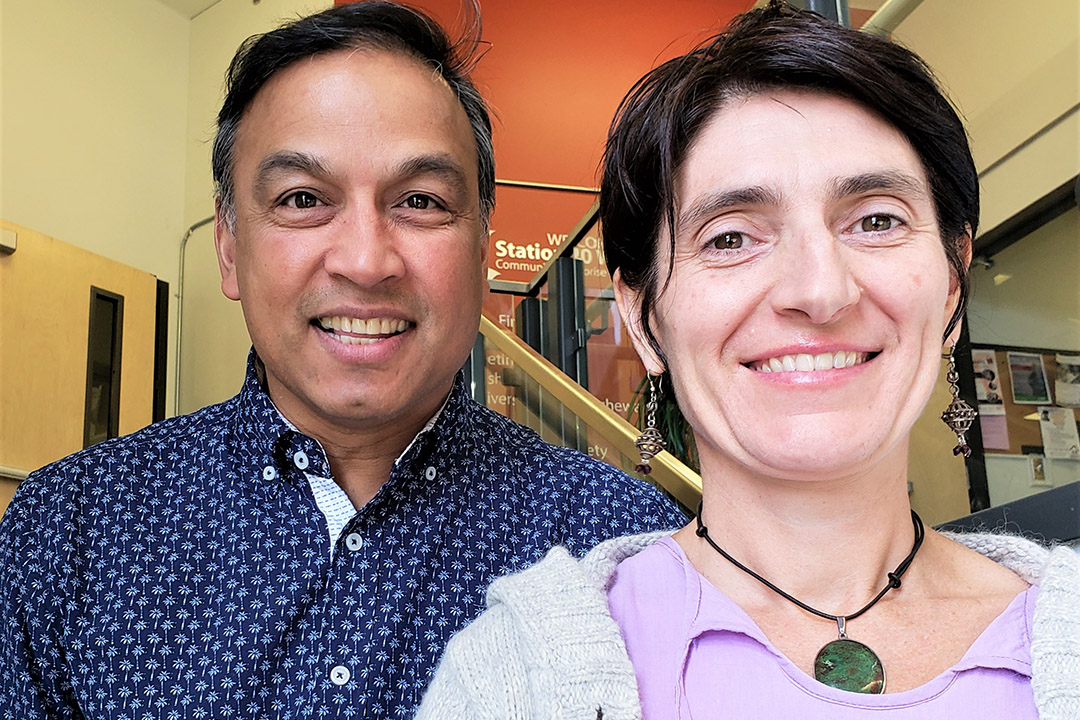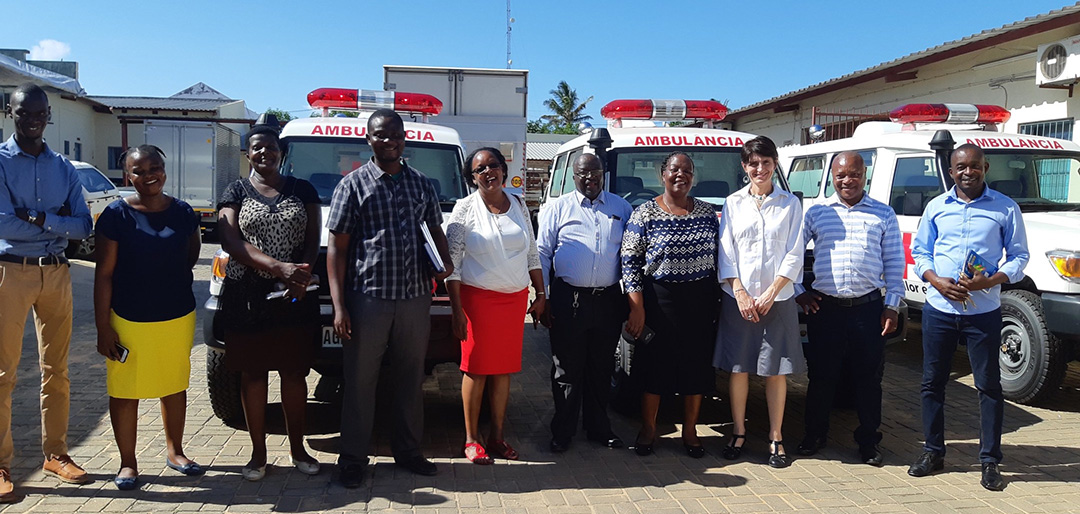
Ambulances support USask Mozambique project
For expectant mothers in the African country of Mozambique, reaching medical services could mean walking up to 15 kilometres over sandy and difficult terrain.
By KRISTEN McEWENTwo years into the five-year University of Saskatchewan (USask) research project, the Mozambique-Canada Maternal Health project has delivered a total of six ambulances—three conventional ambulances and three local ambulances—to be distributed throughout three districts in Inhambane, Mozambique.
The Mozambique-Canada Maternal Health Project aims to reduce maternal and newborn mortality and improve sexual and reproductive health by taking a woman-centred and gender sensitive approach to mobilizing communities, increasing capacity in the health-care system and conducting research in 20 communities in the province.
“The roads are so intensely difficult that it takes quite a long time (to travel),” said project director Dr. Jessie Forsyth (PhD), noting that it’s challenging for vehicles to cross terrain as well.
Forsyth has been in Mozambique since July 2017 and became project director in 2018. Originally from Nova Scotia, Forsyth initially became involved with the project as a gender advisor, working with the team in integrating gender analysis across all programming areas.
Principal investigator and USask epidemiologist Dr. Nazeem Muhajarine (PhD) noted that the project is working with the provincial health directorate in Inhambane and local health workers to provide both training and infrastructure support, such as ambulances, maternal clinics, waiting homes, and updated medical training and materials.
“With our presence there, we are contributing much needed assets to the health-care system, for example, equipment and material, infrastructure and management as well as clinical know-how in the form of initial and continuing clinical education,” he said.

In December 2018, the project received three ambulances to transport patients from local health posts to larger health facilities located in the districts of Zavala, Morrumbene and Vilankulo.
In March, the project had three local ambulances delivered. Also known as motorcycle ambulances, these vehicles have a sidecar, with cushions and storage space for basic materials. The vehicles will be travelling up to 15 kilometers between a rural community and the nearest health post. If there is a need for more advanced care, patients can be transported by one of the larger ambulances to a referral hospital, Forsyth said. The local ambulances will be driven by someone from the community who knows the area well, and can respond to emergencies to take women to the nearest health post.
“We will also be providing upgraded and gender-sensitive first-aid and emergency training for those using the ambulances—the drivers, health workers involved in the (patient) transfer,” Forsyth said.
Unlike the larger ambulances, these local ambulances are intended to stay within the community and be managed by the community, she added.
Establishing infrastructure is one of multiple interventions the project is working on in these communities. The team is also working to ensure that local women are empowered to become leaders in their health care needs, research, training and health management.
During the next three years, the project will continue to provide updated medical training for health workers in sexual and reproductive care for women alongside community-level sexual and reproductive health education.
“It’s really encouraging to see how much we have accomplished in two years, and it is a testament to our partnerships and the quality of our team here and in Mozambique,” Muhajarine said.

